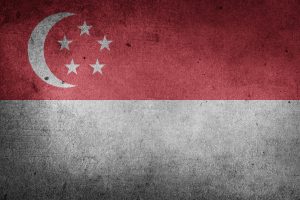Singapore will hold a presidential election on September 1 – assuming more than one candidate is nominated to run for the post – after Prime Minister Lee Hsien Loong issued a writ of election on Friday.
According to a government statement announcing the election, interested candidates must apply for a certificate of eligibility and meet other requirements before Nomination Day on August 22. At that stage, if there is only one candidate who is qualified, he or she will be declared president-elect.
The current president, Halimah Yacob, has chosen not to run for re-election. Her six-year term comes to an end on September 13.
Three prominent figures have announced an interest in the post. Tharman Shanmugaratnam, a People’s Action Party (PAP) grandee and former senior minister, officially launched his bid for the presidency in late July, promising to be a “president for a new era.”
Ng Kok Song, the former chief investment officer at the Singaporean sovereign wealth fund GIC has also announced his intention to run, as has George Goh, an entrepreneur, business leader, and former non-resident ambassador to Morocco.
How many of these candidates actually surmount the city-state’s stringent criteria remains to be seen. The Singaporean presidency has undergone a number of changes since the country’s independence, but the most recent change in 2017, the constitution was amended so that the presidency would be reserved for a member of a particular ethnic group if no one from that group had held the largely ceremonial post for five six-year terms.
This is not so much an issue for this year’s election, which will be open to all of the country’s ethnic groups. But in that same amendment in 2017, eligibility requirements for the presidency were tightened so candidates must have served as a senior civil servant for three years or have served as the chief executive of a company with shareholders’ equity of at least S$500 million ($372 million) and made a profit after tax for the entire time.
Tharman, the PAP’s de facto preference for president, passes all of the pertinent criteria, but whether Ng and Goh make the cut will be determined by the government-appointed Presidential Election Committee prior to August 22.
In Goh’s case, while he is the chief executive of five companies, none of them reaches the shareholder equity threshold of S$500 million and it is unclear whether a candidate can combine the average shareholder equity of several companies in order to qualify. Similarly, whether Ng qualifies depends on the scope of his responsibilities in his former role at GIC.
As a result, both have submitted their nominations under what is known as the public sector “deliberative track.” As per The Straits Times, this track is for those “who claim to have experience and ability comparable to that of those who automatically qualify and can effectively carry out the functions and duties of the President.” All this is to say that the political fate of both is in the hands of the Presidential Election Committee (PEC).
Before the last presidential election in 2017, the PEC ruled that two candidates – Mohamed Salleh Marican and Farid Khan Kaim Khan – did not qualify under the private sector deliberative track. Both candidates ran companies that fell short of the S$500 million shareholder equity requirement. Two other non-Malay candidates were also ruled ineligible for the election, which was open only to Malay candidates.
As a result, the election was uncontested, and Halimah Yacob was appointed Singapore’s first woman president. The disqualifications were the subject of a protest at the city-state’s Speaker’s Corner. As Reuters reported at the time, most of the several hundred attendees dressed in black and raised a banner with the message “ROBBED OF AN ELECTION #NotMyPresident.”
An earlier version of this article incorrectly stated that Tharman Shanmugaratnam is a current senior minister in the Singaporean government. In fact, he resigned from his government posts on July 7.

































